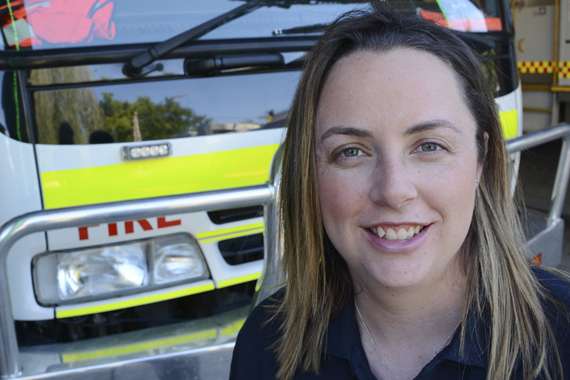Exercise to Help On-Call Workers Fire Up
Description
The CQUniversity Appleton Institute research project suggests that countermeasures to sleep inertia, such as introducing 30 seconds of intense exercise upon waking, will go some way towards helping improve on-call workers' alertness in times of crises.
Partners
On-call emergency workers (healthy adult males)
Impact
CQUniversity's sleep inertia research project continues to test the theory that a short burst of energy, in combination with caffeine, is a practical countermeasure to sleep inertia. Dr Vincent's presentation 'Sleeping on the job – improving performance when woken for work' recently won the national 5 Minute Research Pitch Competition, known as 5RP.
Dr Grace Vincent
In the moments immediately after waking, when Australia's on-call workers may need to make life or death decisions or drive themselves towards danger, their performance is not at its peak.
That's why CQUniversity's Senior Postdoctoral Research Fellow, Dr Grace Vincent, and her research team, are helping experts 'wake up' to the countermeasures of impaired performance, during times of sleep inertia (grogginess upon waking).
The CQUniversity Appleton Institute research project suggests that countermeasures, such as introducing 30 seconds of intense exercise upon waking, will go some way towards helping improve on-call workers' alertness.
Australia's on-call workforce is a critical component of the systems that protect the nation's economic, commercial, environmental, social and cultural interests and assets.
Hundreds of thousands of Australian workers and volunteers are regularly on stand-by, to be called to respond to natural disasters, domestic threats, medical emergencies, infrastructure failures, and transport accidents.
According to Dr Vincent, sleep deprivation is costing the Australian economy $66 billion dollars and kills about 3000 people per year, due to associated physical and mental health issues and accidents.
"Some of the most sleep deprived people in our communities are our on-call workers – our paramedics; doctors; nurses; and, of course, our firefighters," she explains.
"One of the major risks associated with sleep deprivation is the impact it has on performance, particularly upon waking, when an individual is likely to experience sleep inertia.
"For most people, this impact in inconsequential, easing their way into full waking function before taking on daily activities. Others don't have this luxury."
For years, Dr Vincent and her research team, and other experts, investigated strategies for accelerating the transition from sleep to optimal waking function – light, loud alarms, caffeine and cold showers. However, these were either impractical in an emergency scenario or didn't reduce sleep inertia fast enough.
"In 2018, after speaking with firefighters about effective strategies, the idea of completing five star jumps before commencing work was put forward. We already knew that exercise can increase adrenaline by up to 10 times, and this can increase alertness," says Dr Vincent.
"Obviously we couldn't expect firefighters to complete half an hour of exercise before an emergency. Therefore, we decided to test whether firefighters experienced an increase in adrenaline after 30 seconds of exercise upon waking."
Dr Vincent sought participants and ran several experiments in the sleep laboratory where volunteers were woken at 2 am, before having to sprint as hard as they could for 30 seconds on an exercise bike.
"The research team took blood samples to measure adrenaline and checked how participants were feeling, by assessing how alert they were and how well they performed certain tasks over a one-hour period.
"The most important finding was that 30 seconds of exercise increased participants' adrenaline by five and half times within the first five minutes. Thus, when participants exercised, they were significantly more alert than when they didn't exercise."
CQUniversity's sleep inertia research project team continues to test the theory that a short burst of energy, in combination with caffeine, is a practical countermeasure to sleep inertia.
"Typically, we don't actually manage the sleep inertia effect, so anything that has scientific basis to help firefighters do their job has got to be a good thing. It's quite simple and easy to do so I definitely feel this is something we need to continue investigating," explains Dr Vincent.
"Currently we are applying for funding to extend the research. To assess actual performance, we will test participants on a range of physical and cognitive tasks following 30 seconds of exercise, to see whether this reduces sleep inertia."
Connect with CQUniversity
At CQUniversity we know the value of our connections locally and around the world. Our partnerships help us create opportunities, deliver solutions and change lives. From time to time, we share our Connections Count update where we share our highlights, including research impact stories like the ones below. Sign up to become one of our valued connections.

